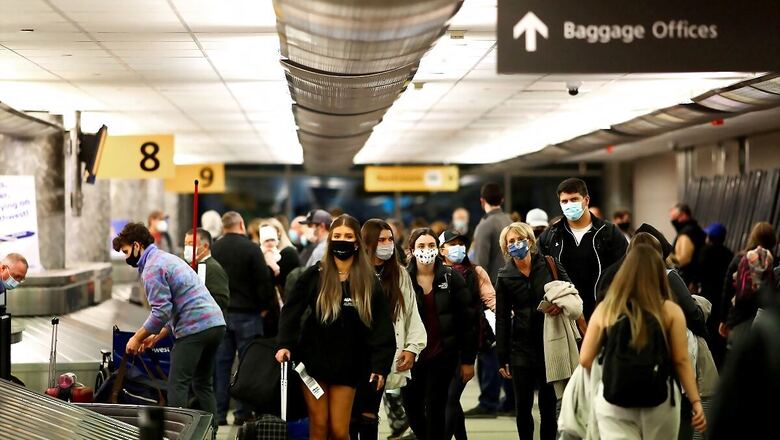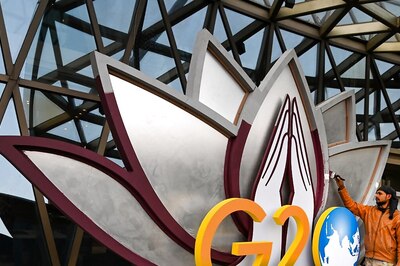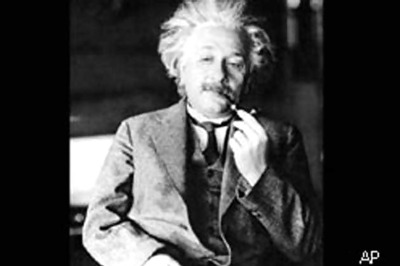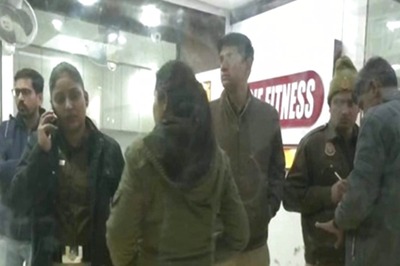
views
Getting vaccinated against COVID-19 two months ago was a huge relief. As an emergency medicine doctor, it came with the comfort that caring for COVID-19 patients would carry less risk. It also came with a white card proving I’d been vaccinated. I felt certain this small card would be my pass to Big Things. To date, I haven’t yet had to prove my vaccination status. That will soon change.
There’s a growing realization that an official document verifying one’s vaccination status — often referred to as a vaccine passport — will soon be required for certain events and activities.
But let’s collectively hit pause for a second. Vaccine passports may sound like golden tickets. But without fully addressing their limitations and downsides, we risk further marginalizing those who’ve already been disproportionately impacted by the pandemic.
Vaccine passports are certified paper documents or digital apps that prove the holder is vaccinated against COVID-19. By requiring everyone on a plane, in a restaurant, or at a concert to prove they’ve been vaccinated, the COVID risk is negligible. Their promise is alluring and represents a common-sense solution at face value. That’s why they’re rapidly becoming commonplace all over the world.
Last month, the Kingdom of Bahrain updated its BeAware app — initially used for contact tracing and scheduling tests — to include a digital vaccine passport. In China, the epicenter of the COVID-19 pandemic, a similar vaccine passport was rolled out last week in anticipation of international travel. And after closing its borders, Greece announced it would welcome vaccinated tourists starting this summer, thanks to vaccine passports.
But vaccine passports aren’t only for travel. In Israel, where an impressive 50 per cent of the population is now vaccinated, the Green Pass app has allowed restaurants, stadiums, and other long-shuttered venues to safely reopen.
In the U.S., there is broad support for restricting similar activities to only those who’ve been vaccinated. A Reuters/Ipsos poll found that the majority of Americans say unvaccinated people shouldn’t be allowed to travel on planes, go to gyms, or be able to return to the office.
But even if vaccine passports are a seemingly obvious and essential component of our new reality, much of the discussion around their use has overlooked their most problematic aspects.
Practical Issues
Our society tends to operate as if everyone has access to a digital device and can navigate encrypted apps or QR codes. But the vaccine rollout highlighted how those less experienced with the online world — often people whose incomes are below the national poverty level and older populations less comfortable with digital technology — faced significant hurdles securing vaccine appointments.
These same populations would undoubtedly have similar struggles in registering for and using digital vaccine passports. Paper alternatives are an option, but it is easy to see how they could also complicate certain services, like purchasing airline tickets or making restaurant reservations, which have largely moved online.
And what about children? Since the initial vaccine trials excluded participants under 16 years old, anyone younger than that isn’t yet eligible for vaccination. Trials for children are taking place now, but they won’t likely be completed until this fall, and there is no guarantee the vaccines will have the same efficacy as in adults or be approved for use in all age groups. So does that mean children — who make up over 20% of our population — will be ineligible for the benefits of a vaccine passport program? The promise of a child-free restaurant, wedding, or cruise might sound attractive to some. But for the families who’ve struggled over the past year, this would be another huge setback.
It’s also important to consider those who’ve had COVID-19, which includes an estimated 100 million people in the U.S. alone. We know that their likelihood of reinfection, especially in the short term, is exceedingly low. Due to that fact, and along with reports that vaccine side effects may be more common for those who’ve previously been infected with COVID, it’s possible some may forgo vaccination. But they could reasonably argue they deserve the same societal benefits as the vaccinated cohort. This would require a separate certification program. And it would be more complicated because of the variable performance of antibody tests to prove a history of previous infection.
Access Issues
In addition to the practical considerations, there are significant issues of access. Since the onset of the vaccine rollout, wealthy white communities have experienced the greatest level of ease in getting vaccinated. This despite the fact that COVID-19 has impacted Black, Latinx, and Indigenous people throughout the pandemic at disproportionately higher rates.
Even when they’re able to get the vaccine, some in these communities may refuse it, stemming from decades of mistreatment, neglect, and outright malpractice by the medical system. Vaccine passports could further marginalize the same communities who’ve been hit hardest in this pandemic, due to the built-in systems of privilege and inequity in our society.
The inequities of the vaccine rollout are even more pronounced on the global stage. In the U.S., President Biden recently announced that all adults will be eligible for a vaccine by May 1, 2021. But the vaccine hoarding by wealthy nations — including the U.S., which has supply contracts for three times as many vaccines than people eligible for them — means many low- and middle- income countries won’t achieve widespread vaccination until 2023. Passports and visas have long been used to limit international travel, usually to those who have the means and resources to do so. Vaccine passports would create even more hurdles to global mobility and equality.
Then there are the individuals who can’t, or won’t, get vaccinated against COVID-19 despite having access. Some aren’t able to be vaccinated due to a history of severe allergic reactions to vaccine components. Pregnant women may defer vaccination given the lack of evidence on impact to the developing fetus. And there is still a large number of Americans who say they’re not going to get the shot. A recent Pew Research poll found that 30% of Americans probably or definitely would not receive a vaccine. Some worry the vaccines were “rushed” through the regulatory process (they weren’t) or take issue with the fact that they don’t have full FDA approval (they don’t; they are being used under Emergency Use Authorization).
Implementation and Privacy Issues
My home state of New York recently developed a smartphone app called the Excelsior Pass, in partnership with IBM, to “fast-track reopening theaters, stadiums, and other businesses as more New Yorkers are vaccinated.” In the past month it’s been used to verify vaccination status or a recent negative COVID-19 test for entry to professional sports games at Barclays Center and Madison Square Garden. When I signed up for the beta version of Excelsior Pass, it asked for lots of personal information: age, workplace, phone number, date of vaccination.
There are significant privacy concerns when it comes to these apps. It’s unclear who will control and certify the data for each of them. But will that prevent people from handing over their vaccination information? Sharing one’s age, zip code, and date of vaccination may not raise eyebrows. Many Americans already give their personal data to tech companies like Facebook and Google without much hesitation. But we witnessed how some of the digital apps used for contact tracing were highly intrusive — live-tracking and uploading user’s locations without their consent.
It’s hard to believe some vaccine passport apps won’t monetize user’s data in similarly dubious ways, such as with ad targeting. And as with most apps, most users of digital vaccine passports likely won’t read the full terms and conditions. Also, the app landscape may be cluttered. There could be different apps and certification processes for restaurants, airlines, and entertainment venues. And there may be no agreement or guidance on which vaccines are eligible for inclusion.
To cut through some of this chaos, the World Health Organization is leading an effort to develop a digitally enhanced International Certificate of Vaccination that it hopes will serve as a globally recognized certification. But in the meantime, a piecemeal approach to vaccine passports is already taking place, including the development of state-based platforms here in the U.S. This will likely only accelerate after the federal government recently said it shouldn’t be responsible for verifying who has been vaccinated.
One of the other big questions around vaccine passports hinges on enforcement. In Israel, the vaccine rollout has been the fastest in the world per capita and life is inching back to normal. But as noted in a recent New York Times article on Israel’s Green Passport, enforcement is variable:
“Restaurants are not all checking everybody assiduously. You can kind of flash a document and it might be yours or it might not. They’re not checking your ID and then checking your Green Passport, but they are trying to stick to the regulations at least by asking if you have a Green Passport when you phone to make a reservation. Of course, it’s a bit awkward for the restaurateurs because they don’t want to be the police, checking people’s documents.”
We’ve all seen videos of store employees trying to enforce mask mandates and convince a customer to wear a face covering. Sometimes this ends in physical violence and injury to someone who is just trying to do their job. Who will enforce vaccine passports at places of business? And what will happen when people attempt to sidestep the regulations?
From the earliest days of the pandemic, the decentralized state-by-state approach was one of the greatest defining failures of our COVID response. The lack of strong coordinated federal leadership led to variable restrictions in communities all across the country. It’s easy to see how 50 separate approaches to vaccine passports could do the same.
As with the vaccine rollout, relying on vaccine passports to get us back to normal — without a full consideration of the limitations and who will be left out — risks recreating and reinforcing the inequities that have characterized the pandemic from the start.
This piece was first published on Medium.
Read all the Latest News, Breaking News and Coronavirus News here. Follow us on Facebook, Twitter and Telegram.



















Comments
0 comment